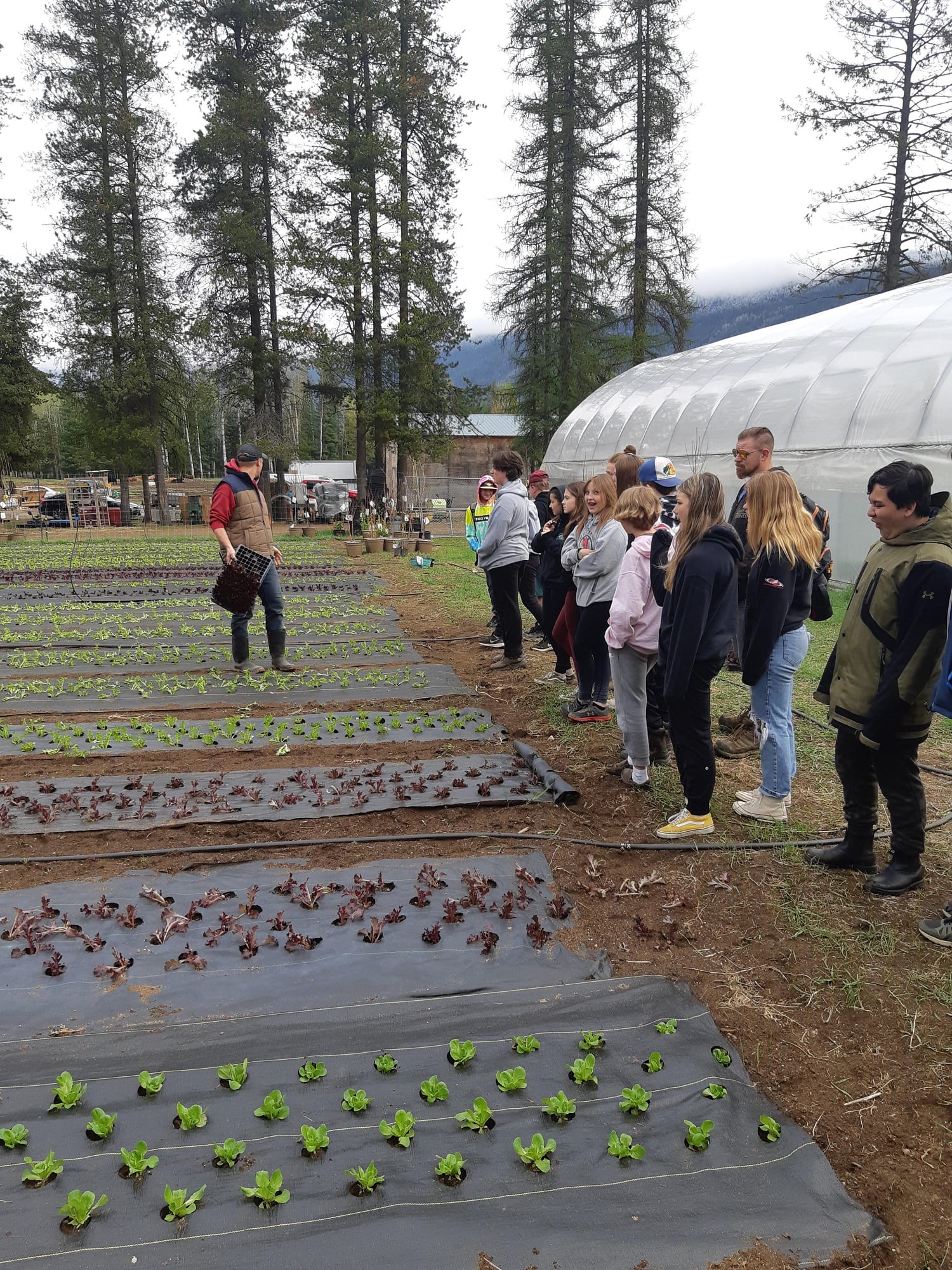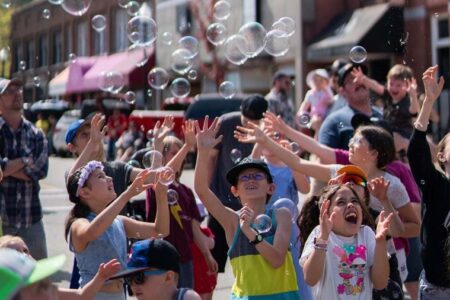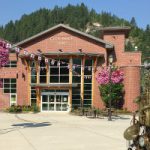Local students learn about food production
Students from Castlegar’s Kinnaird Elementary School got to see firsthand where our food comes from, meet local farmers who help fill our grocery shelves, and learn a bit more about food production and waste on a recent field trip.
Jeff Karran and Jess Foster’s Grade 6-7 class, under the guidance of Wildsight educator Jess Williams, participated in a Beyond Recycling program this year. Beyond Recycling is a Wildsight-run education program that takes students on a journey to explore their energy, waste, and consumption. Through 24 weeks, students go beyond the 3 Rs to really understand where our waste comes from, where it goes, and how we can make changes to lessen our impact on the planet.
This spring, Ms. Williams took the students on a field trip to Linden Lane Farms in the Slocan Valley’s Krestova community. This small scale family-run organic farm provides local, organic produce to the community. Ms. Foster lives in the area and felt it was a great opportunity for her students to experience a local farm operation to learn about how our food is grown and why it’s important to support local agriculture.
In his introduction to the students, owner / operator Matthew Carr, said what students remember about a field trip can have a life changing impact on their future. When he was in Grade 10, Mr. Carr conducted a plant experiment that then sparked a personal interest in growing plants. Now he feeds the local community with organic, nutrient-rich foods.
“This program is so important because it gives the students the opportunity to experience hands-on the reality of local organic farming,” says Ms. Williams. “Some have never been inside a large greenhouse and felt the humid warmth and smelled the sweetness of new plants growing. When students experience the smells and sounds of what they are learning about it reinforces the learning and instils the connection to that memory.”
In the greenhouse, students learned about starting plants, how greenhouses work, and what this farm grows for customers.
“I had no idea tomato plants could grow that high!” exclaimed Briana, after Mr. Carr showed the class the tomato greenhouse and how they train the tomatoes to grow 30 + feet on a trellis system designed for high yield production.
Students learned about insects, and how an organic farm has ways to control these pest challenges without the use of chemical sprays. They also learned about strategies of farming in certain weather and climate, such as water use, ground covers, and seed selection. They saw machinery that is used on a small scale farm, as well as non-mechanical tools that aid in weeding and seeding the garden.
The class also visited their distribution building where they learned about how the farm sells their products. Some items, such as seeds, are mailed to customers far away, introducing the students to the business side of the operation.
To end the tour, students got to visit the barn where sheep, goats, chickens, and cattle were kept. The students got to help bottle feed a 4-day-old calf and 2-week-old baby goats.
“That was definitely a highlight of the tour. We got to experience firsthand the smells and sounds of the barn, which led to discussions about manure and compost,” says Ms. Williams.
During the chaos of feeding seven baby goats, student Ayla remarked, “I have never fed a baby goat before; they wag their tails just like dogs do!”
Ms. Williams says the tour was an excellent experience for the students, and a good way to wind down the year’s learning through Beyond Recycling.
“So many students experienced “firsts” on this farm tour; it was a truly memorable experience,” sums up Ms. Williams. “This is why I love teaching the Beyond Recycling program. I witness the students having memorable learning experiences that may change their perspective on our food security, in this case. Real life experiences have the potential to lead to real life changes when choosing what to eat, and where we get it from.”
To learn more about Beyond Recycling, visit www.beyondrecycling.ca
Beyond Recycling couldn’t happen without the generous support of funders, including the Columbia Basin Trust, the Columbia Shuswap Regional District, Natural Sciences and Engineering Research Council of Canada, the Province of British Columbia, the Regional District of Central Kootenay, the Regional District of Fraser Fort George, and TD Friends of the Environment, as well as all the generous individual donors who help make Wildsight Education programs possible.



























Comments